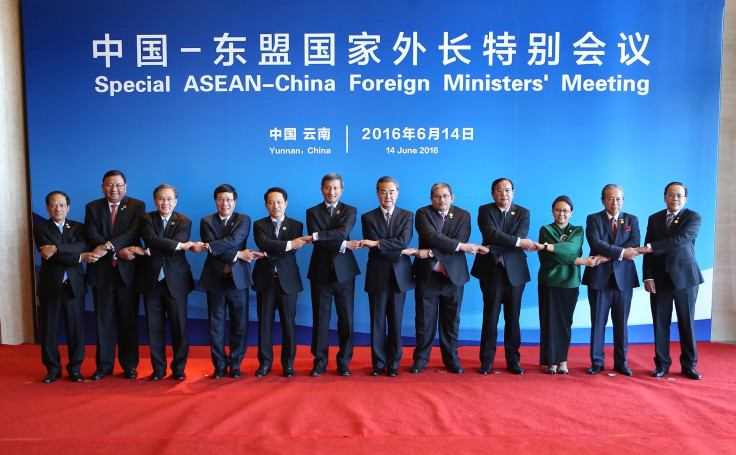ASEAN Issues Tough Statement On South China Sea, Retracts Hours Later

The Association of Southeast Asian Nations Tuesday issued a tough statement on tensions in the South China Sea, only to retract it hours later. The statement from the 10-nation regional bloc was issued Tuesday night following a China-ASEAN meeting in the southern Chinese city of Yuxi.
The meeting was called in part to discuss the rising tensions in the sensitive South China Sea region, which is marred by territorial disputes. After a meeting with China’s foreign minister, top ASEAN diplomats urged respect for international law in resolving disputes, likely aiming at Beijing’s refusal to accept the ruling on the Philippines’ legal challenge against Chinese maritime claims in the region from an arbitration tribunal in The Hague.
The statement reportedly said the group “cannot ignore what is happening in the South China Sea as it is an important issue in the relations and cooperation between ASEAN and China.”
“We expressed our serious concerns over recent and ongoing developments, which have eroded trust and confidence, increased tensions and which may have the potential to undermine peace, security and stability in the South China Sea,” it added.
Hours after the statement was issued, Malaysia’s foreign ministry said ASEAN was retracting the document to make some changes. However, no explanation was given, and as of late Tuesday an amended statement has not been issued.
The Wall Street Journal later cited a senior diplomat from one of the ASEAN countries as saying that the bloc has decided not to issue a joint statement and individual statements would be released by member nations, if they desired.
Four members of the bloc — Malaysia, Vietnam, Brunei and the Philippines — directly claim islands and waters in the region that China considers its sovereign territory. China’s claim also overlaps with Indonesia’s exclusive economic zone.
China has repeatedly favored one-on-one talks over third-party arbitration, especially interference from the United States, which it says has an ulterior motive. The claimants, however, are all at a considerable military and economic disadvantage when pitched against the Asian giant.
© Copyright IBTimes 2024. All rights reserved.












